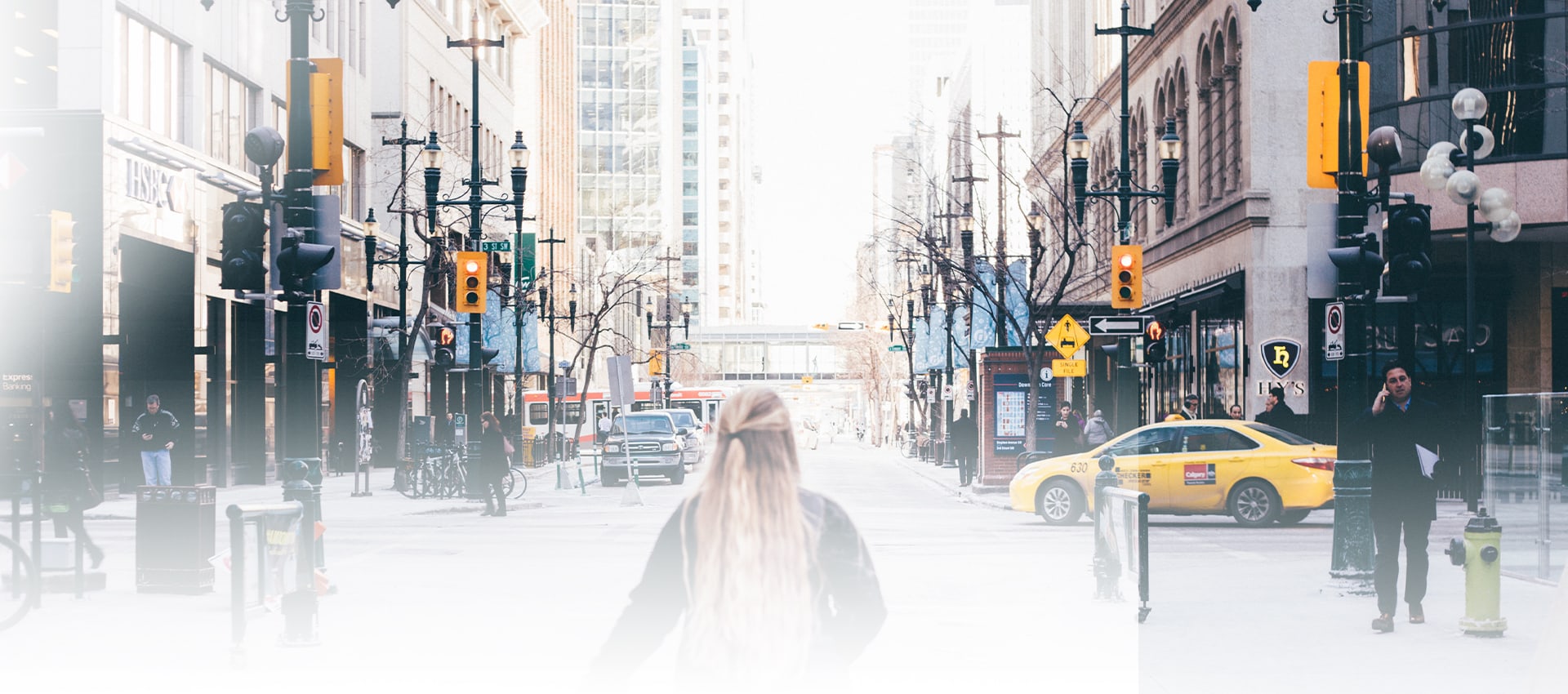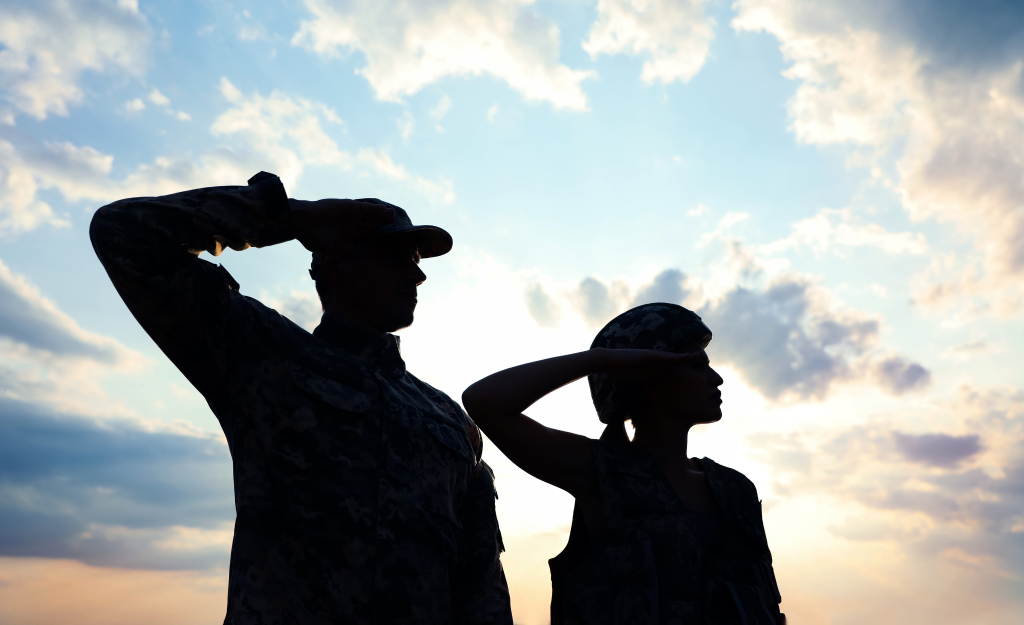As Remembrance Day approaches, we honour the courage and sacrifices of those who have served. But beyond the ceremonies and moments of silence, it’s important to recognize the ongoing mental health challenges that many veterans face. We sat down with Christine, a 988 Suicide Crisis Line Responder and a 30-year military veteran, who shared her experiences and talked about the unique mental health struggles veterans face.
Christine’s military journey began at 18, when she enrolled immediately out of high school. Though she talked of the early years fondly, she joked about how overwhelmed she was in the beginning.
“In the beginning, I was overwhelmed. I remember crying to my father calling him one night. ‘Dad, I made a mistake. I can’t do this. It’s too hard.’”

The training period was tough on her mental health. Aside from getting used to the meticulous structure of the military, she talked about the expectation to adapt to the constant change, whether it be the location, duties or roles.
“You’re always changing. You’re always adapting. You’re always being exposed to new things. And some of it is traumatic. You can train for trauma. But when you experience it, — tragedies, traumas, stresses, stuff like that — it affects you.”
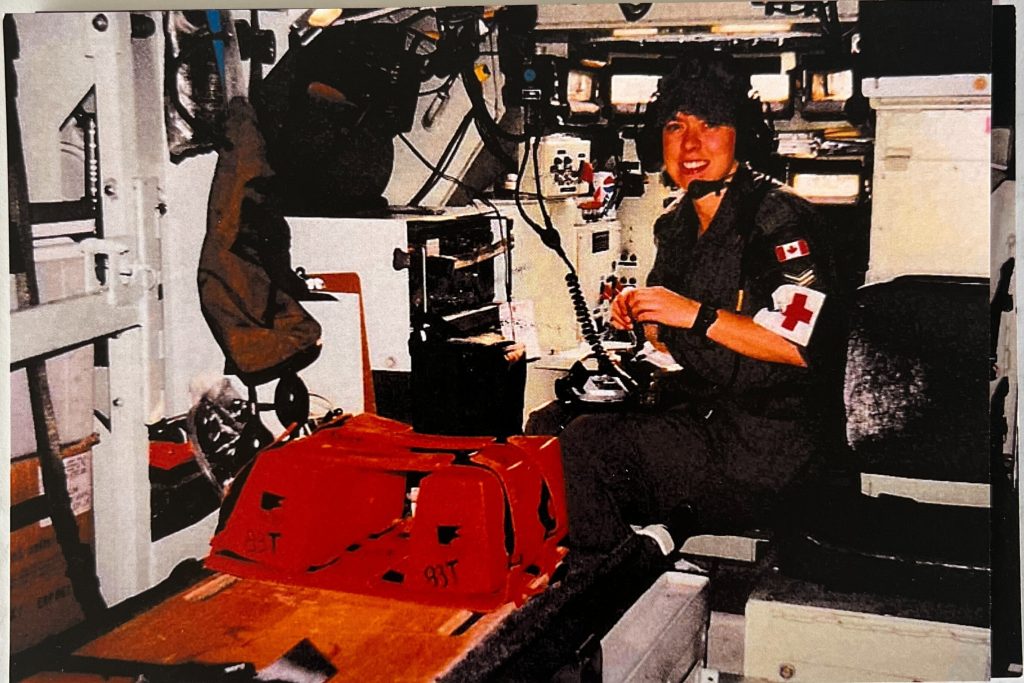
Christine trained throughout Canada and overseas, and was deployed to Bosnia, Dubai and the Western Pacific Ocean. She spent a lot of time away from her family, friends and old life.
“When you’re in the military, you’re away from your family loved ones. You move around so much, it’s hard to set down roots, to have a community build. So, there was a lot of sacrifice for me.”

While she talked about the lifelong friends and good memories she made during her service, many soldiers and veterans struggle to talk about their mental health due to stigma, despite their strong bonds and shared experiences.
“People don’t like to reach out. They don’t like to be wounded or sick. We don’t want to admit it because we may feel like we can’t do the job or if it’ll affect our careers. We don’t want to look weak.”
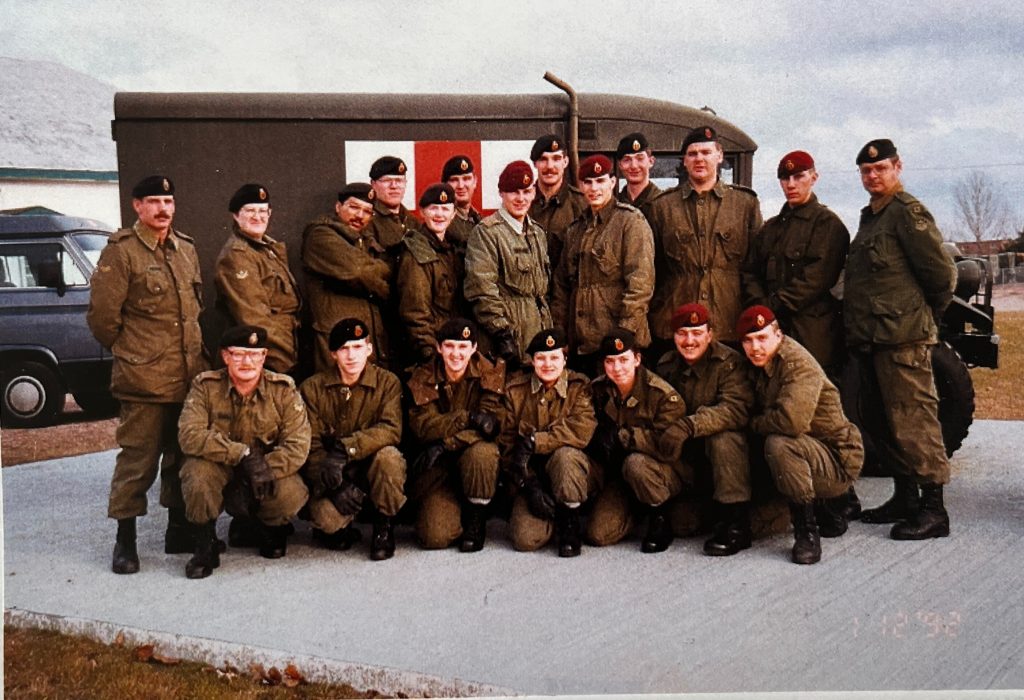
Veterans need special attention during this time of year. Remembrance Day can bring up a lot of complex emotions beyond grief. Christine remarked on the survivor’s guilt she felt about her friend being deployed to Afghanistan.
“My friend went to the war in Afghanistan, whereas I went to a different place. I feel like I was spared some things. I have that that survivor’s guilt because a lot of my friends were sent to places that I didn’t go. I had a wonderful career and a lot of exposure to things, but never what they did, what they went through.”
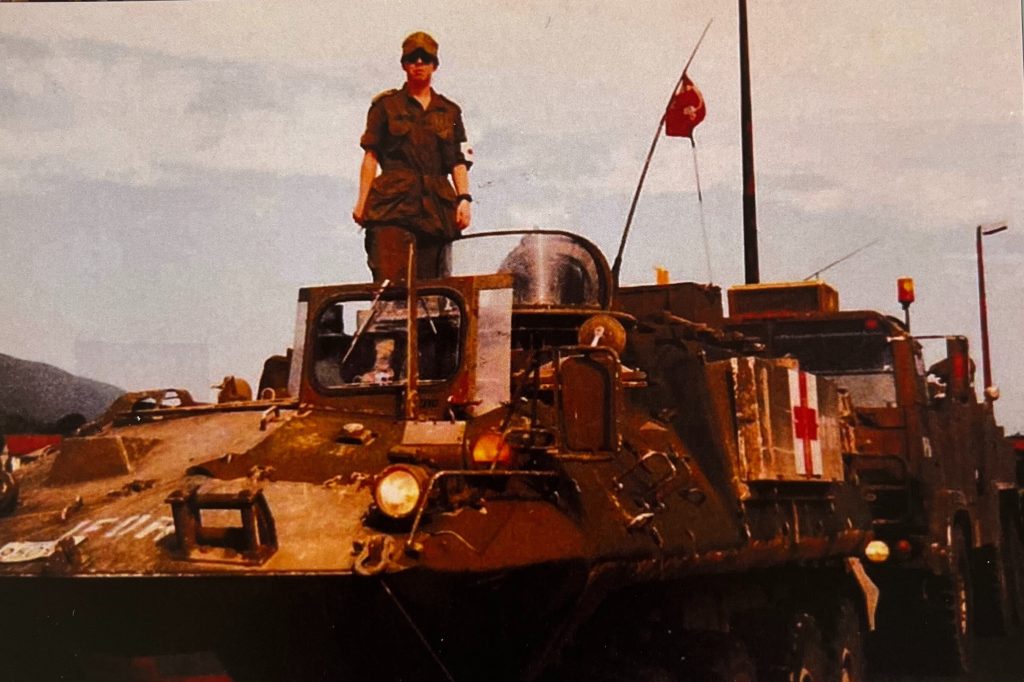
While she grappled with it for a number of years, Christine slowly healed and recognized the power of being there and creating a supportive space for her fellow veterans to talk about shared traumas and experiences.
“On Remembrance Day, especially, I think of those soldiers who made the ultimate sacrifice. You’re never alone. That’s why I’m so passionate about being there for people.”
If you or someone you know needs support, remember that help is available. Phone or text 9-8-8 or contact our local lines by phoning or texting 403-266-4357. Learn more.
